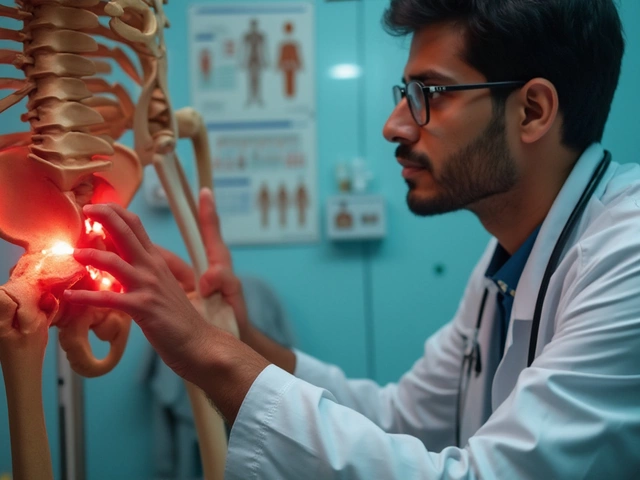Metabolism – the Body’s Engine for Processing Medicines and Toxins
Ever wondered why the same pill can work great for one person and cause side effects for another? The answer lies in metabolism – the set of chemical reactions your liver, kidneys, and gut use to turn substances into harmless (or sometimes harmful) by‑products. In India’s crowded pharmacy market, where generic drugs and herbal supplements mix together, understanding metabolism can save you from unwanted reactions.
Metabolism isn’t a single step; it’s split into two phases. Phase 1 uses enzymes like CYP450 to break drugs into smaller pieces. Phase 2 then attaches water‑soluble groups so the body can flush them out. If either phase stalls, the drug can linger, raising toxicity risk. This is why doctors often ask about other meds, herbal teas, or even diet habits before prescribing.
Key Factors That Change How You Metabolize Drugs
Age matters. Kids have immature enzyme systems, while seniors see a slowdown, meaning dosage adjustments are common. Genetics also play a big role – a few gene variants can make someone a “fast metabolizer” or a “slow metabolizer,” altering drug effectiveness. Lifestyle choices matter too. Heavy alcohol use, smoking, or even a high‑fat meal can switch enzyme activity on or off.
In India, the prevalence of herbal remedies like Ashwagandha or Turmeric adds another layer. Some herbs inhibit CYP enzymes, causing drugs to stay longer in the bloodstream. Others boost the enzymes, breaking drugs down too quickly and making them less effective. Knowing which combinations are risky can prevent a lot of headaches.
Practical Ways to Support Safe Metabolism
First off, keep a written list of everything you take – prescription meds, over‑the‑counter pills, and herbal supplements. Share it with every doctor you see; this simple habit catches most dangerous interactions.
Second, eat a balanced diet. Foods like cruciferous vegetables (broccoli, cauliflower) and citrus can help maintain healthy enzyme levels. Avoid binge drinking and limit processed junk, because they can overload liver enzymes.
Third, stay hydrated. Water helps the kidneys filter out the waste products of metabolism faster. Aim for at least 2 liters a day, more if you’re active or live in a hot climate.
Finally, get regular check‑ups. Simple blood tests can flag liver or kidney strain before it becomes a serious problem. If you notice unusual side effects – nausea, dizziness, or skin rashes after starting a new drug – call your doctor right away.
Metabolism is the backstage crew that makes sure every medicine does its job safely. By knowing the factors that influence it and taking a few practical steps, you can keep your body’s processing engine humming smoothly, no matter what pills or herbs you pop.

30 30 30 Diet: What It Really Means for Weight Loss
The 30 30 30 diet is making waves for its simple approach to jumpstarting weight loss—eat 30 grams of protein within 30 minutes of waking up, and do 30 minutes of exercise. This article breaks down what the diet involves, how it works, and why so many people are trying it. You'll get easy-to-follow tips, bust some common myths, and find out whether this plan actually delivers results. Get practical advice you can actually use if you’re wondering if the 30 30 30 method is worth a shot. Perfect for anyone tired of complicated diets that just don't stick.

How ADHD Impacts Life Expectancy
Apr, 10 2025

Top 3 Survivable Cancers: Understanding and Hope
Mar, 8 2025


